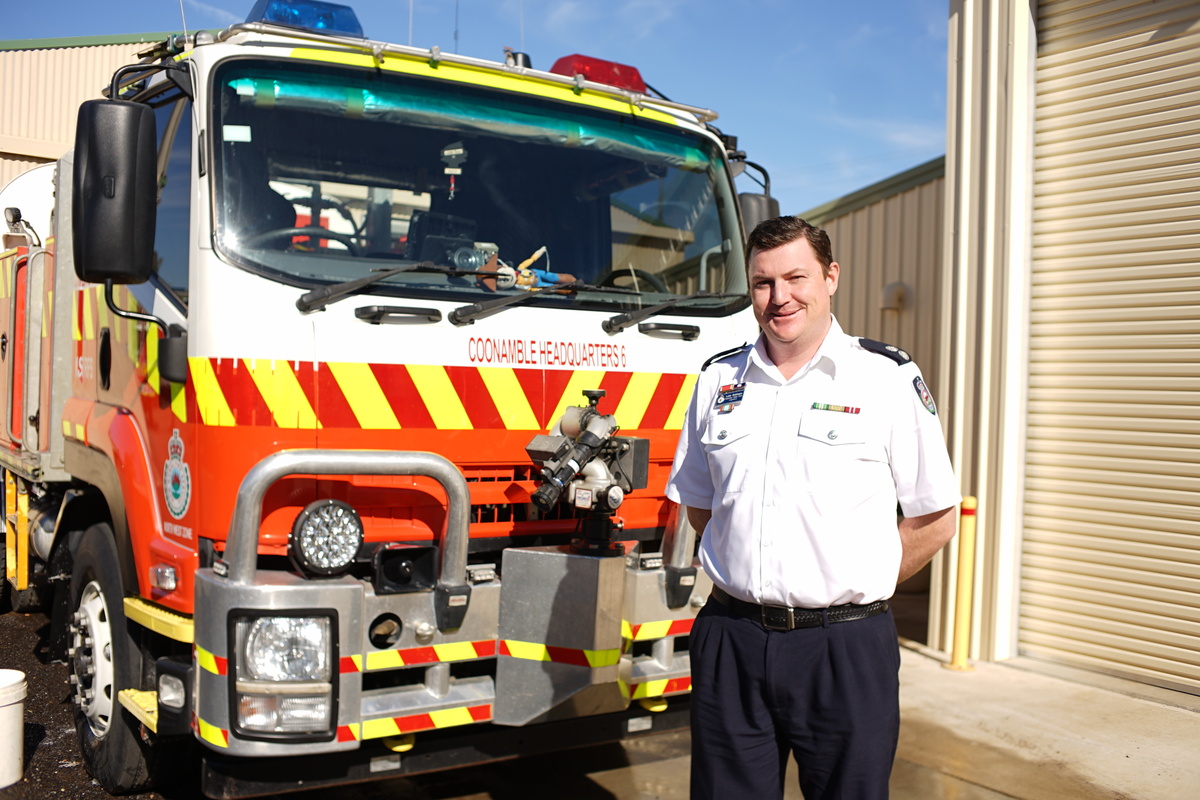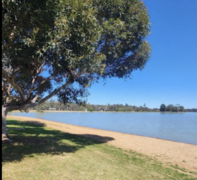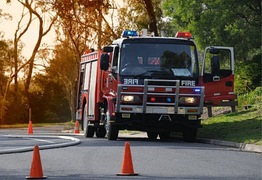Bushfire season kicks off across Western NSW
Lily Plass
01 October 2024, 7:40 AM
 Luke Robinson at the Coonamble fire station earlier this year.
Luke Robinson at the Coonamble fire station earlier this year. High rainfall through winter has built up fuel loads, and residents are urged to be on alert as we enter the fire danger period today.
District Manager of the Northwest Rural Fire Service (RFS) Zone Luke Robinson said that the wet weather has caused fuel loads to rise across the Western Plains region.
"We're looking at an average fire season, however, the northwest zone in particular has an above-average chance of a later fire season starting in February, March, or even April."
Mr Robinson said the late start to the fire season is due to grass and weed growth which will only die off towards the end of the summer thus adding to the fuel load later in the season.
There will not be any additional crew in these areas but the staff that is already present will receive additional training.
"We've been holding meetings and training sessions with our crews to familiarise them with the trucks and the new technology that's been rolled out with mobile data terminals which help give our crew better situational awareness of fire that occur in our area," Mr Robinson said.
The district commander added that they have also received new and refurbished trucks throughout the northwest region as well as a new bulk water carrier based in Coonamble to assist the fire departments in getting through the bushfire season.
There have already been a few significant bushfires this year, including in the Coonamble and Bogan Shire.
At the beginning of September, there was a fire on the edge of the Macquarie Marshes in the Coonamble Shire that spanned 1,000 hectares and took four days to extinguish. Firefighters were unable to reach the blaze due to boggy soils.
Aircrafts from Sydney had to be called to monitor the blaze from above.
There was another fire in Coolabah that spread to 1,000 hectares in a single afternoon, which also occurred earlier this year.
The bush fire season is planned to last until 31 March 2025 with either a reduction or extension possible depending on the conditions. During the official season, residents must apply for a permit at their local fire service or online at least 24 hours before starting a fire.
Mr Robinson advised residents to always monitor any active fire and check the weather conditions before planning a fire.
"Now is also the time to review your Bushfire Survival plans. Make sure you've got in place and have the conversation with your families and loved ones about what you will do in the event of an emergency."



